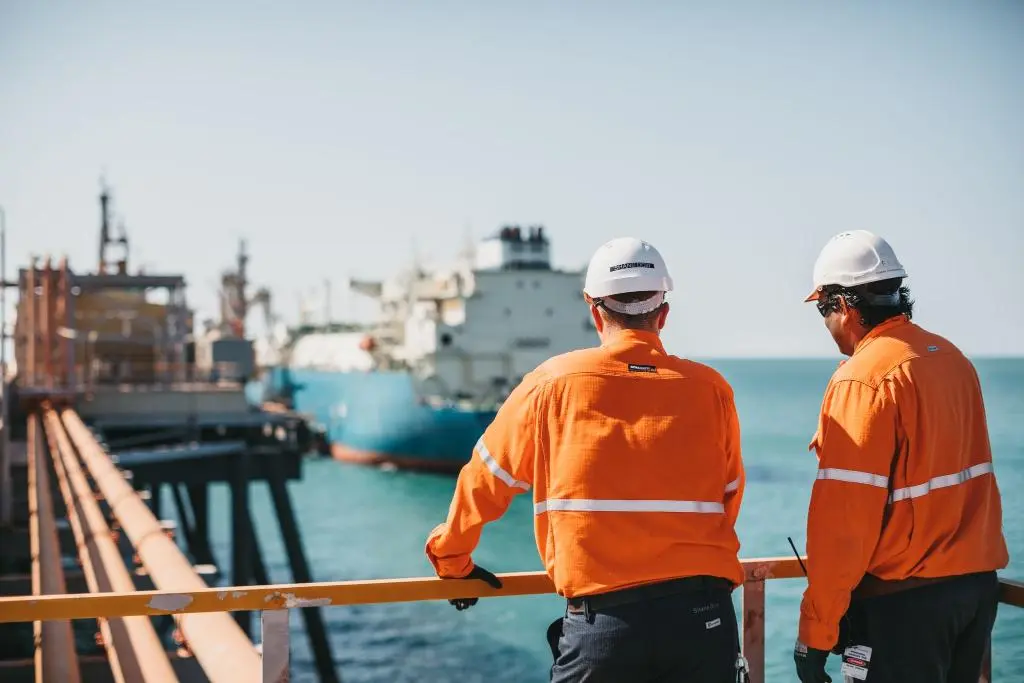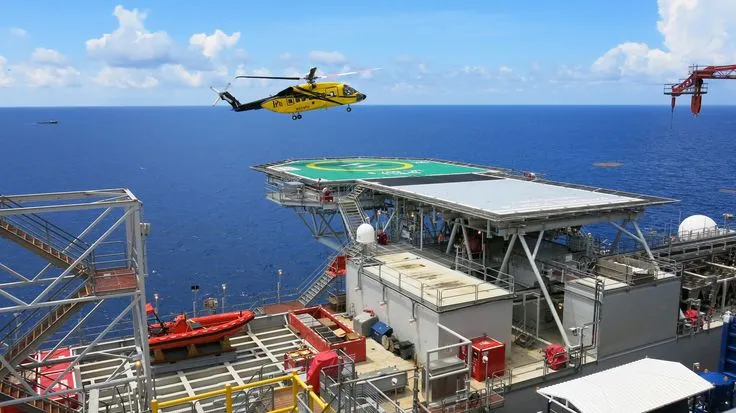Outline
Introduction Offshore accidents are uniquely challenging, encompassing various legal, medical, and environmental complexities. An offshore accident attorney specializes in advocating for the rights of individuals injured in accidents on the water, including those working on oil rigs, ships, platforms, or other offshore installations. This article provides a comprehensive guide to understanding the role of an offshore accident attorney, the types of cases they handle, and how they can assist victims in securing fair compensation.
- Introduction to Offshore Accidents
- Definition and types of offshore accidents.
- The unique challenges of offshore environments.
- What Is an Offshore Accident Attorney?
- Description of the role and expertise.
- How they differ from other types of personal injury lawyers.
- Common Causes of Offshore Accidents
- Equipment failure and hazardous conditions.
- Human error and negligence.
- Environmental factors (weather, sea conditions).
- Types of Offshore Injuries
- Physical injuries (broken bones, burns, head injuries).
- Psychological impact and long-term effects.
- Key Laws Governing Offshore Accidents
- Jones Act and maritime laws.
- Longshore and Harbor Workers’ Compensation Act (LHWCA).
- Outer Continental Shelf Lands Act (OCSLA).
- How Offshore Accident Attorneys Help Victims
- Investigating the accident and gathering evidence.
- Building a case and proving liability.
- Negotiating settlements or representing clients in court.
- Compensation in Offshore Accident Cases
- Types of damages available: medical costs, lost wages, pain and suffering.
- Factors that affect compensation amounts.
- Choosing the Right Offshore Accident Attorney
- Qualities to look for in an experienced attorney.
- Questions to ask during consultations.
- Steps to Take After an Offshore Accident
- Immediate actions for health and safety.
- Gathering evidence and documenting the accident.
Sample Article (Partial Content)
Introduction to Offshore Accidents
Offshore work environments are crucial to global industries like oil, gas, and shipping. However, these environments pose a high risk of accidents, given the unique and often unpredictable conditions. Offshore accidents may occur on oil rigs, platforms, drilling vessels, and commercial ships. They can lead to severe injuries or even fatalities, affecting workers physically, mentally, and financially.
These incidents aren’t just tragic—they’re legally complex due to the unique set of laws governing maritime and offshore operations. Offshore accident attorneys play an essential role in representing injured parties, navigating through the specific laws and regulations to secure fair compensation.
What Is an Offshore Accident Attorney?
An offshore accident attorney is a legal professional who specializes in personal injury cases occurring in maritime and offshore settings. These attorneys have specialized knowledge of maritime law, also known as admiralty law, which governs legal disputes involving marine operations. Unlike general personal injury lawyers, offshore accident attorneys understand the unique regulations that apply to injuries sustained at sea or on offshore structures.
The primary goal of an offshore accident attorney is to help injured offshore workers secure compensation for their injuries. This compensation may include covering medical expenses, lost wages, pain and suffering, and long-term rehabilitation costs.
Common Causes of Offshore Accidents
Offshore accidents often result from a combination of environmental hazards, technical issues, and human errors. Here are some common causes:
- Equipment Failure and Hazardous Conditions Offshore environments rely on specialized machinery, such as drilling equipment and heavy lifting gear. Equipment failure is a significant risk factor, potentially due to poor maintenance, improper usage, or manufacturing defects. Faulty equipment can lead to explosions, fires, and other serious incidents.
- Human Error and Negligence In a high-risk environment, even small mistakes can have severe consequences. Inadequate training, miscommunication, or neglecting safety protocols may cause avoidable accidents. If a company fails to provide proper training, it may be held liable for negligence.
- Environmental Factors Offshore accidents are frequently influenced by unpredictable weather, including rough seas, high winds, and storms. Even with extensive safety measures, extreme weather can contribute to accidents and worsen their impact.
Types of Offshore Injuries
Due to the hazardous nature of offshore work, injuries sustained in these environments are often severe. Common injuries include:
- Fractures and Broken Bones: Workers may suffer broken bones from slips, falls, or being struck by heavy objects.
- Burns and Chemical Exposure: Fires, explosions, and exposure to harmful substances can result in severe burns or long-term respiratory issues.
- Traumatic Brain Injuries (TBIs): Falls or equipment malfunctions can lead to head injuries, potentially causing cognitive impairments.
Key Laws Governing Offshore Accidents

Offshore accident claims are governed by several key laws that are specific to maritime and offshore work environments. These laws are designed to protect injured workers and ensure they have a legal path to pursue compensation for their injuries. Here’s an overview of the most important laws in offshore accident cases:
1. The Jones Act
The Jones Act (formally known as the Merchant Marine Act of 1920) is one of the most crucial pieces of legislation for offshore workers. This law provides a legal framework for injured seamen to pursue compensation for injuries sustained while working on vessels or offshore structures. The Jones Act covers workers who are considered “seamen” and defines a seaman as anyone who spends a significant portion of their time working on navigable waters.
Under the Jones Act, injured workers can file lawsuits against their employers for negligence. The employer may be held liable for failing to provide a safe working environment, and a seaman can recover damages for medical bills, lost wages, pain and suffering, and more. This law also enables workers to bring claims against shipowners, operators, or other third parties involved in the accident.
2. The Longshore and Harbor Workers’ Compensation Act (LHWCA)
The Longshore and Harbor Workers’ Compensation Act (LHWCA) provides compensation for injured workers who are involved in dockside, port, or offshore activities but are not classified as seamen. These workers typically work on vessels or in the ports but may not meet the specific definition of “seaman” under the Jones Act. This law offers benefits such as medical care, wage loss compensation, and disability benefits for workers who are injured while working in covered industries.
The LHWCA offers a no-fault compensation system, meaning that workers do not need to prove negligence in order to receive benefits. However, there are complex rules governing how claims are handled, especially when there is overlap between the Jones Act and the LHWCA. Offshore accident attorneys are essential in helping workers navigate the intricacies of these laws and determine which benefits they are eligible for.
3. The Outer Continental Shelf Lands Act (OCSLA)
The Outer Continental Shelf Lands Act (OCSLA) governs offshore drilling operations and accidents occurring on the outer continental shelf. This law applies to workers involved in offshore oil and gas drilling and other activities beyond the territorial waters of the U.S. (typically three miles offshore). Under OCSLA, workers are entitled to certain protections, and the law specifies the process for pursuing claims related to offshore accidents in this jurisdiction.
OCSLA covers accidents occurring on offshore drilling rigs, platforms, and vessels. Injured workers can file claims for compensation under the OCSLA, and the laws governing these claims are similar to the Jones Act and the LHWCA. Understanding OCSLA is crucial for workers in the offshore oil and gas industries, as this law provides the framework for their compensation options.
4. General Maritime Law
In addition to the aforementioned statutes, general maritime law governs issues related to offshore work injuries. This body of law is derived from both U.S. federal laws and international treaties and conventions. Maritime law encompasses several topics, such as vessel collisions, accidents during the loading or unloading of goods, and personal injury cases involving seamen and offshore workers. Offshore accident attorneys often draw on general maritime law to handle claims involving complex legal issues or injuries that do not fall under the scope of the Jones Act, LHWCA, or OCSLA.
How Offshore Accident Attorneys Help Victims
Navigating the legal process after an offshore accident can be overwhelming, especially when the laws and regulations are so specialized. Offshore accident attorneys play a critical role in helping injured workers by providing expert legal counsel and representation throughout the entire claims process.
1. Investigating the Accident and Gathering Evidence
One of the first steps an offshore accident attorney takes is conducting a thorough investigation into the accident. This often involves gathering witness statements, reviewing accident reports, inspecting equipment or machinery involved, and assessing safety protocols on the site. Attorneys work closely with experts in marine safety, engineering, and accident reconstruction to uncover the true cause of the accident and identify any parties at fault.
Since offshore accidents often happen in remote locations, some of the evidence may be difficult to collect, making legal expertise essential. Offshore attorneys can also ensure that evidence is preserved and that all necessary documentation is obtained, which will be crucial for building a strong case.
2. Proving Liability and Negligence
Once the evidence is gathered, the attorney’s job is to establish liability. If the injury was the result of negligence, whether by the employer, a third party, or another worker, the attorney will aim to prove that negligence caused the accident. For example, an employer may be liable if they failed to maintain equipment properly or neglected to provide adequate safety training to workers.
Offshore accident lawyers also examine whether any equipment manufacturers, contractors, or subcontractors may have played a role in causing the accident. Determining fault in offshore accidents can be challenging because there are often many parties involved, including employers, vessel owners, and contractors. Offshore accident attorneys specialize in identifying the responsible parties and holding them accountable.
3. Negotiating Settlements and Representing Clients in Court
In many offshore accident cases, the injured worker may receive a settlement offer from the employer or insurance company. Offshore accident attorneys are skilled negotiators who work on behalf of their clients to ensure they receive fair compensation. However, settlement offers are not always in the best interest of the injured worker, especially if they do not fully cover the long-term costs of medical care, rehabilitation, and lost income.
If the settlement offer is insufficient or if the case is too complex to settle outside of court, an offshore accident attorney will be prepared to take the case to trial. Having an attorney who is experienced in offshore injury litigation gives the worker the best chance of receiving a favorable outcome, whether through settlement or a court verdict.
Compensation in Offshore Accident Cases

The compensation available in offshore accident cases varies depending on the specific circumstances of the accident and the laws that apply. In general, victims of offshore accidents may be entitled to the following types of damages:
1. Medical Costs
Injured workers are entitled to compensation for all medical expenses related to their injury, including hospital bills, surgeries, physical therapy, and medications. Offshore injuries often require extensive medical treatment, and the costs can quickly escalate. Offshore accident attorneys ensure that victims are compensated for both immediate and long-term medical expenses.
2. Lost Wages
Injured workers may be unable to return to work due to their injuries, leading to a loss of income. Compensation for lost wages includes both current wages and potential future earnings if the injury results in long-term disability. In some cases, workers may also be eligible for compensation for reduced earning capacity if their injury affects their ability to work in the future.
3. Pain and Suffering
In addition to medical costs and lost wages, injured workers may be entitled to compensation for pain and suffering. This includes compensation for physical pain, emotional distress, and a reduced quality of life due to the injury. Calculating pain and suffering damages can be difficult, but experienced offshore accident attorneys know how to advocate for a fair amount.
4. Long-Term Disability or Permanent Injury
Some offshore injuries are so severe that they result in long-term disability or permanent impairment. In these cases, workers may be entitled to ongoing compensation to cover future medical care, lost income, and the impact of the injury on their daily life.
Choosing the Right Offshore Accident Attorney
When selecting an offshore accident attorney, it’s essential to choose someone with specific expertise in maritime law and offshore injury cases. Here are some qualities to look for:
1. Specialization in Offshore Accidents
Not all personal injury attorneys have experience with offshore accident claims. It’s crucial to select a lawyer who specializes in offshore injuries and understands the complexities of maritime law. Offshore accident attorneys should have experience with the Jones Act, LHWCA, OCSLA, and other relevant regulations.
2. Track Record of Success
Look for an attorney with a proven track record of success in offshore accident cases. Ask for case examples or references from previous clients to verify their experience and success rate.
3. Strong Communication and Advocacy Skills

Effective communication is critical in offshore accident cases, as these often involve complex technical issues and multiple parties. Choose an attorney who can explain legal matters clearly and who is dedicated to advocating for your best interests.
Steps to Take After an Offshore Accident
If you are involved in an offshore accident, there are several important steps you should take immediately to protect your rights:
- Seek Medical Attention: Your health and safety are the top priority. Get medical treatment right away, even if you feel the injury is minor.
- Report the Accident: Notify your employer or supervisor about the accident and ensure that an official report is filed.
- Document the Incident: If possible, take photographs of the scene, injuries, and equipment involved. Collect witness statements and any other evidence that may be helpful.
- Contact an Offshore Accident Attorney: Reach out to an experienced offshore accident attorney as soon as possible to ensure your legal rights are protected.
Conclusion
Offshore accidents can have devastating consequences, but injured workers have legal rights and avenues for compensation. Offshore accident attorneys are essential in navigating the complexities of maritime law and ensuring that victims receive the compensation they deserve. Whether you are dealing with a minor injury or a life-changing accident, an experienced attorney can help you through the legal process and provide support every step of the way.
